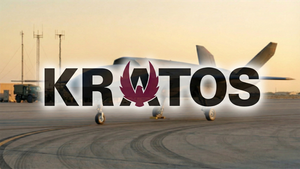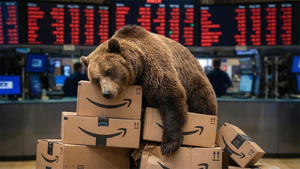Geopolitical turbulence is pushing AI to the forefront of the innovation agenda, but many supply chains are not ready
According to Supply Chain’s Big Bet on AI For Geopolitical Resilience, a new global study from Economist Impact, commissioned by Kinaxis® Inc. (TSX:KXS), while 71% of companies have accelerated AI deployment in response to tariffs, inflation, and geopolitical volatility, a wide gap remains between AI ambition and implementation, according to Economist Impact.
Nearly every company (97%) is experimenting with AI, but only 20% can make real-time decisions, and just 22% have a defined AI strategy, and those with one are more than three times as likely to see measurable ROI. Moreover, while business leaders tend to underestimate the new risks and complexities that AI may introduce, staff are more focused on the practical realities with the effort, change management, and technical challenges involved in turning AI ambition into everyday impact.
“Disruption is no longer cyclical, it’s structural, and AI has become the defining accelerator of adaptability,” said Fab Brasca, Senior Vice President, Market Strategy and Product Management at Kinaxis. “In a world of constant geopolitical and economic turbulence, companies cannot afford to experiment in isolation or chase hype. Those that orchestrate intelligence across the enterprise, by turning data into continuous decisions, will convert volatility into advantage.”
Adoption Is Up, But Action Lags
AI adoption varies widely by use case, revealing where companies are focusing their early efforts - and where critical blind spots remain.
- 52% of organizations report full integration for predictive analytics (the leading use case)
- Fewer than 15% of companies use AI for supplier monitoring, anomaly detection, or geopolitical tracking, the very risks now driving adoption.
At the same time, economic pressure is amplifying the urgency to act as companies face rising costs and supply instability.
- 79% of companies have already passed higher costs on to consumers
- More than three-quarters report worsening availability of key components
Inside organizations, a confidence gap is emerging between leadership optimism and day-to-day execution.
- Two-thirds of C-suite executives expect AI to deliver returns within 12 months
- Less than 50% of junior leaders share that view
Regional Contrasts Are Clear
- Executives in Asia-Pacific (81%) and Europe (78%) report faster AI acceleration than those in North America (57%)
- Executives in Europe (38%) and Asia-Pacific (31%) report stronger AI investment momentum than those in North America (22%), reflecting differences in regulatory environments and risk appetite
- Even in the fastest-moving regions, adoption remains shallow - just 11% use AI for scenario modeling and only 3% for geopolitical tracking.
The Blind Spot - Readiness and Governance
Fewer than one in four business leaders expect AI-related risks to increase over the next three years, revealing a major gap between confidence and capability. While companies are rapidly deploying AI to manage geopolitical and economic shocks, most are not addressing the underlying challenges of data readiness, governance, and accountability that will determine whether those investments pay off.
“The data reveal how far ambition has outpaced readiness,” said Oliver Sawbridge, senior manager, trade, and geopolitics at the Economist. “Companies are racing to deploy AI to manage geopolitical and economic shocks, but most lack the data, systems, and strategies to make it work in real time. It is a reminder that resilience depends as much on preparedness as on innovation.”
This growing disconnect highlights a key theme across the study: as AI moves from experimentation to execution, the ability to govern and scale it responsibly will define who turns adoption into advantage.
The Kinaxis View: From Automation to Adaptation in the new Agentic Age
Fewer than one in ten organizations have begun exploring agentic AI. That is where Kinaxis sees the next frontier - using AI as a foundation for adaptability, where agents and humans orchestrate together, continuously, safely, and in context. Powered by concurrency and governance guardrails, every recommendation is explainable, every action auditable, and every decision aligned to business outcomes.
The findings from Supply Chain’s Big Bet on AI For Geopolitical Resilience reinforce this vision. Real resilience is not automation for efficiency’s sake, it is intelligent adaptation. It is the difference between AI that reacts to disruption and AI that helps organizations stay ahead of it: a future built on agentic orchestration, where planning and execution move together to turn volatility into foresight and adaptability into growth.
Learn more
Download and read the full report here: www.kinaxis.com/en/economist-ai
Register for the live webinar with Kinaxis and Economist Impact on November 20 at 11 a.m. ET.
About the Study
The report is based on a survey of more than 800 senior business leaders across Europe, North America, and Asia-Pacific. Economist Impact conducted the research independently, with sponsorship from Kinaxis.
About Kinaxis
Kinaxis is a leader in modern supply chain orchestration, powering complex global supply chains, and supporting the people who manage them. Our powerful, AI-infused supply chain orchestration platform, Maestro, combines proprietary technologies and techniques that provide full transparency and agility across the entire supply chain — from multi-year strategic planning to last-mile delivery. We are trusted by renowned global brands to provide the agility and predictability needed to navigate today’s volatility and disruption. For more news and information, please visit kinaxis.com or follow us on LinkedIn.
Source: Kinaxis Inc
View source version on businesswire.com: https://www.businesswire.com/news/home/20251110649522/en/
71% of global companies have accelerated AI adoption in response to tariffs, inflation, and geopolitical volatility. Only 20% can make real-time decisions, highlighting a widening readiness gap across global supply chains.
Contacts
Media Relations
Matt Tatham | Kinaxis
mtatham@kinaxis.com
+1 917-446-7227
Investor Relations
Rick Wadsworth | Kinaxis
rwadsworth@kinaxis.com
+1 613-907-7613





